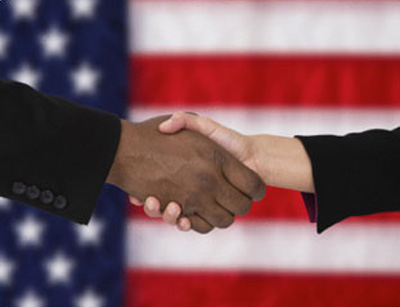Veteran and Military Business Owners Association (VAMBOA) Surpasses 5,000 Members and 105,000 Followers on Twitter
VAMBOA, a non-profit trade association for Service-disabled business owners, Veteran business owners and Military business owners, works to assist these entrepreneurs start, maintain, and grow their companies.
Veteran and Military Business Owners Association (VAMBOA) is announcing that it has surpassed 5,000 memberships of Service-disabled business owners, Veteran business owners and Military business owners, with over 105,000 followers on Twitter.
In the military, personnel are asked to complete an infinite array of tasks, and failure is not an option. Officers, Soldiers, Sailors, Marines and Airmen are often provided limited resources and miniscule budgets to complete their missions. But through American ingenuity, and a determination that dwells in the hearts of those who serve, they are driven to complete their missions.
Thousands of Veterans have put that same drive into running their own businesses. Veteran owned businesses account for over $1 trillion in receipts per year. Veteran owned businesses are a vital part of our nation’s economy. It is for that reason that federal, state and local governments provide special loans, incentives and allotments to help Veteran owned businesses succeed. There are even further provisions, governed by law, for service-disabled Veterans.
“There are scores of programs and benefits designed to help Service-disabled, Veteran and Military owned businesses succeed,” said VAMBOA’s founder, Debbie Gregory. “At VAMBOA, we have made it our mission to connect these Veterans with the resources they need to start and maintain a successful business.”
Since 2010, VAMBOA has been providing its members with the knowledge of these government provisions that help Service-disabled Veteran business owners, Veteran business owners and military business owners succeed. VAMBOA also assists its members by providing business coaching, links to resources, and networking opportunities that are crucial to the success of their businesses. VAMBOA also connects it members to contacts within large corporations and government agencies who can mentor members, and in some cases, can even directly provide members with government contracts and vending contracts within large corporations.
VAMBOA is a 501(c)6 non-profit organization and does not charge dues for membership. VAMBOA relies on corporate sponsorship. If you would like to find out more about corporate sponsorship, contact VAMBOA’s founder, Debbie Gregory at: info@vamboa.org. VAMBOA has a significant reach and is the Go To Site for Corporations to Connect with Service-disabled and Veteran Business Owners.








